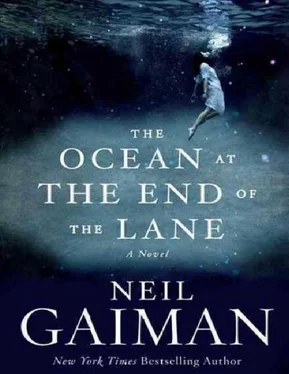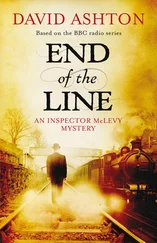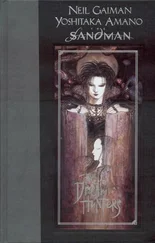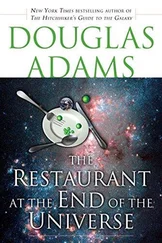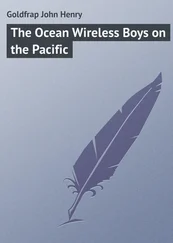“It’s good, it’s good for you, and it’s tasty,” said my father. “And we do not waste food in this house.”
“I said I wasn’t hungry.”
I had lied. I was so hungry it hurt.
“Then just try a little nibble,” he said. “It’s your favorite. Meatloaf and mashed potatoes and gravy. You love them”
There was a children’s table in the kitchen, where we ate when my parents had friends over, or would be eating late. But that night we were at the adult table. I preferred the children’s table. I felt invisible there. Nobody watched me eat.
Ursula Monkton sat next to my father and stared at me, with a tiny smile at the corner of her lips.
I knew I should shut up, be silent, be sullen. But I couldn’t help myself. I had to tell my father why I did not want to eat.
“I won’t eat anything she made,” I told him “I don’t like her.”
“You will eat your food,” said my father. “You will at least try it. And apologize to Miss Monkton.”
“I won’t.”
“He doesn’t have to,” said Ursula Monkton sympathetically, and she looked at me, and she smiled. I do not think that either of the other two people at the table noticed that she was smiling with amusement, or that there was nothing sympathetic in her expression, or her smile, or her rotting-cloth eyes.
“I’m afraid he does,” said my father. His voice was just a little louder, and his face was just a little redder. “I won’t have him cheeking you like that.” Then, to me, “Give me one good reason, just one, why you won’t apologize and why you won’t eat the lovely food that Ursula prepared for us.”
I did not lie well. I told him
“Because she’s not human,” I said. “She’s a monster. She’s a . . .” What had the Hempstocks called her kind of thing? “She’s a flea.' 1 ”
My father’s cheeks were burning red, now, and his lips were thin. He said, “Outside. Into the hall. This minute.”
My heart sank inside me. I climbed down from my stool and followed him out into the corridor. It was dark in the hallway: the only light came from the kitchen, a sheet of clear glass above the door. He looked down at me. “You will go back into the kitchen. You will apologize to Miss Monkton. You will finish your plate of food, then, quietly and politely, you will go straight upstairs to bed.”
“No,” I told him “I won’t.”
I bolted, ran down the hallway, round the corner, and I pounded up the stairs. My father, I had no doubt, would come after me. He was twice my size, and fast, but I did not have to keep going for long. There was only one room in that house that I could lock, and it was there that I was headed, left at the top of the stairs and along the hall to the end. I reached the bathroom ahead of my father. I slammed the door, and I pushed the little silver bolt closed.
He had not chased me. Perhaps he thought it was beneath his dignity, chasing a child. But in a few moments I heard his fist slam, and then his voice saying, “Open this door.”
I didn’t say anything. I sat on the plush toilet seat cover and I hated him almost as much as I hated Ursula Monkton.
The door banged again, harder this time. “If you don’t open this door,” he said, loud enough to make sure I heard it through the door, “I’m breaking it down.”
Could he do that? I didn’t know. The door was locked. Locked doors stopped people coming in. A locked door meant that you were in there, and when people wanted to come into the bathroom they would jiggle the door, and it wouldn’t open, and they would say “Sorry!” or shout “Are you going to be long?” and—
The door exploded inward. The little silver bolt hung off the door frame, all bent and broken, and my father stood in the doorway, filling it, his eyes huge and white, his cheeks burning with fury.
He said, “Right.”
That was all he said, but his hand held my left upper arm in a grip I could never have broken. I wondered what he would do now. Would he, finally, hit me, or send me to my room, or shout at me so loudly that I would wish I were dead?
He did none of those things.
He pulled me over to the bathtub. He leaned over, pushed the white rubber plug into the plug hole. Then he turned on the cold tap. Water gushed out, splashing the white enamel, then, steadily and slowly, it filled the bath.
The water ran noisily.
My father turned to the open door. “I can deal with this,” he said to Ursula Monkton.
She stood in the doorway, holding my sister’s hand, and she looked concerned and gentle, but there was triumph in her eyes.
“Close the door,” said my father. My sister started whimpering, but Ursula Monkton closed the door, as best she could, for one of the hinges did not fit properly, and the broken bolt stopped the door closing all the way.
It was just me and my father. His cheeks had gone from red to white, and his lips were pressed together, and I did not know what he was going to do, or why he was running a bath, but I was scared, so scared.
“I’ll apologize,” I told him “I’ll say sorry. I didn’t mean what I said. She’s not a monster. She’s . . . she’s pretty.”
He didn’t say anything in response. The bath was full, and he turned the cold tap off.
Then, swiftly, he picked me up. He put his huge hands under my armpits, swung me up with ease, so I felt like I weighed nothing at all.
I looked at him, at the intent expression on his face. He had taken off his jacket before he came upstairs. He was wearing a light blue shirt and a maroon paisley tie. He pulled off his watch on its expandable strap, dropped it onto the window ledge.
Then I realized what he was going to do, and I kicked out, and I flailed at him, neither of which actions had any effect of any kind as he plunged me down into the cold water.
I was horrified, but it was initially the horror of something happening against the established order of things. I was fully dressed. That was wrong. I had my sandals on. That was wrong. The bathwatei was cold, so cold and so wrong. That was what I thought, initially, as he pushed me into the water, and then he pushed further, pushing my head and shoulders beneath the chilly water, and the horror changed its nature. I thought, I’m going to die.
And, thinking that, I was determined to live.
I flailed with my hands, trying to find something to hold on to, but there was nothing to grab, only the slippery sides of the bath I’d bathed in for the last two years. (I had read many books in that bath. It was one of my safe places. And now, I had no doubt, I was going to die there.)
I opened my eyes, beneath the water, and I saw it dangling there, in front of my face: my chance for life, and I clutched it with both hands: my father’s tie.
I held it tightly, pulled myself up as he pushed me down, gripping it for life itself, pulling my face up and out of that frigid water, holding on to his tie so tightly that he could no longer push my head and shoulders back into the bath without going in himself.
My face was now out of the water, and I clamped my teeth into his tie, just below the knot.
We struggled. I was soaked, took some small pleasure in the knowledge that he was soaked as well, his blue shirt clinging to his huge form
Now he pushed me down again, but fear of death gives us strength: my hands and my teeth were clamped to his tie, and he could not break his grip on them without hitting me.
My father did not hit me.
He straightened up, and I was pulled up with him, soaked and spluttering and angry and crying and scared. I let go of his tie with my teeth, still held on with my hands.
He said, “You ruined my tie. Let go.” The tie knot had tightened to pea size, the lining of the tie was dangling damply outside of it. He said, “You should be glad that your mother isn’t here.”
Читать дальше
